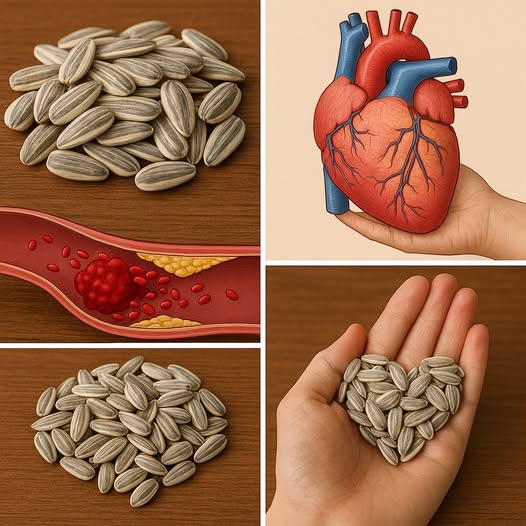Introduction
Imagine biting into something so rich, flavorful, and satisfying that even meat lovers can’t resist it—yet it comes straight from your garden. That plant is eggplant (also called aubergine), often hailed as the “meat of the garden.” With its firm texture, savory taste, and endless versatility in cooking, eggplant has earned a reputation as one of the most underrated yet powerful vegetables you can grow.

In this blog, we’ll explore why eggplant is tastier than meat, reveal 8 compelling reasons you should grow it in your garden, and answer some of the most frequently asked questions about cultivating, eating, and benefiting from this superfood. Whether you’re a health enthusiast, a gardener, or simply someone looking to add more flavor to your meals, eggplant deserves a prime spot in your life.
8 Reasons to Keep Eggplant in Your Garden
1. Eggplant Has a Meaty, Satisfying Texture
Unlike many vegetables that soften when cooked, eggplant retains a dense, chewy consistency that closely mimics meat. Its sponge-like nature absorbs flavors, herbs, and sauces beautifully, making it the perfect substitute in dishes like burgers, lasagna, kebabs, and stews.
- Why it matters: For people transitioning to a plant-based diet, eggplant provides the satisfaction of eating something hearty without sacrificing taste.
- Example: A grilled eggplant steak marinated in garlic and olive oil can rival a traditional beef steak in both texture and flavor.
2. Eggplant Is Packed With Nutrients
Eggplants are low in calories but rich in essential nutrients such as fiber, potassium, magnesium, and vitamins B1 and B6. They are also a powerful source of antioxidants like nasunin, which is found in the deep purple skin.
- Nutrition stats: One cup (82 grams) of raw eggplant has only 20 calories, 5 grams of carbohydrates, and 3 grams of fiber.
- Health benefit: The antioxidants in eggplant protect brain cells from damage, support heart health, and aid in lowering blood pressure.
3. Eggplant Supports Weight Loss
Eggplant is naturally low in calories and high in fiber, making you feel full for longer. This combination helps reduce unnecessary snacking and supports weight management.
- Research insight: Studies show that high-fiber diets are linked to lower body weight and reduced risk of obesity-related diseases.
- Pro tip: Bake or grill eggplant slices instead of frying them for a healthy, waist-friendly alternative to high-calorie meals.
4. It’s a Heart-Healthy Food
Eggplant contains compounds that lower “bad” LDL cholesterol and improve blood flow. The anthocyanins in its skin help reduce inflammation and oxidative stress—two leading contributors to heart disease.
- Fact: A study published in Food & Function found that eggplant juice reduced cholesterol and improved artery flexibility in animals.
5. Eggplant Is Incredibly Versatile in Cooking
From Italian eggplant parmesan to Middle Eastern baba ganoush, Indian baingan bharta, and Asian stir-fries, eggplant adapts to cuisines worldwide.
- Why it matters: A single plant in your garden can lead to hundreds of different recipes—savory, smoky, spicy, or even sweet.
- Bonus: Eggplant can even be dried, grilled, or roasted for long-term storage.
6. Eggplant Is Easy to Grow in Your Garden
Eggplants thrive in warm weather, making them ideal for summer gardens. They require minimal maintenance compared to other crops and produce abundant yields.
- Growing tips:
- Plant in full sun for 6–8 hours daily.
- Use well-drained soil with compost for best results.
- Harvest when the skin is shiny and firm.
- Good to know: One healthy eggplant plant can yield 10–12 fruits per season, making it a cost-effective food source.
7. It Boosts Brain and Bone Health
The phytonutrients in eggplant protect against free radicals that damage brain function. Additionally, its calcium, magnesium, and potassium content support strong bones and reduce the risk of osteoporosis.
- Key nutrient: Nasunin (in the skin) not only protects brain cell membranes but also helps transport nutrients to them effectively.
8. Eggplant Is a Sustainable Alternative to Meat
Producing 1 kilogram of beef requires 15,000 liters of water, while 1 kilogram of eggplant requires less than 300 liters. Growing eggplant at home drastically reduces your carbon footprint while providing delicious, nutrient-rich food.
- Why it matters: Choosing eggplant over meat helps combat climate change and supports eco-friendly eating.
Frequently Asked Questions (FAQs) About Eggplant
1. Why do people say eggplant is “tastier than meat”?
Because of its firm, chewy texture and ability to soak up seasonings, eggplant often tastes richer and more flavorful than meat when cooked with spices and sauces.
2. Is eggplant healthy to eat every day?
Yes! Eating eggplant regularly supports heart health, weight management, and digestion. However, people with kidney problems should monitor intake due to its moderate oxalate content.
3. Does eggplant really replace meat in meals?
Absolutely. Eggplant can substitute for chicken, beef, or fish in dishes like curries, stir-fries, and even burgers. Many vegan and vegetarian recipes use eggplant as the main protein-like component.
4. How do you reduce bitterness in eggplant?
Sprinkle sliced eggplant with salt and let it rest for 30 minutes before cooking. This draws out excess moisture and reduces bitterness, leaving a smoother taste.
5. What’s the best way to cook eggplant for maximum flavor?
Grilling, roasting, or baking enhances eggplant’s smoky, meaty flavor while keeping it healthy. Frying is delicious but adds unnecessary calories.
6. Is it difficult to grow eggplant in a small space?
Not at all! Eggplant grows well in containers, making it perfect for urban gardens, balconies, and patios. Choose compact or dwarf varieties for limited space.
7. Can eggplant help lower cholesterol?
Yes. Studies suggest that eggplant contains compounds that help lower bad cholesterol levels, supporting overall heart health.
Conclusion
Eggplant isn’t just another vegetable—it’s a nutrient powerhouse, a sustainable meat alternative, and a versatile ingredient that deserves a place in every garden and kitchen. With its meaty texture, low-calorie profile, heart-boosting compounds, and environmental benefits, eggplant stands as one of the smartest plants to grow at home.
By incorporating eggplant into your diet, you’re not only enjoying meals that are tastier than meat but also investing in your health, reducing your environmental impact, and saving money.
So, if you’ve been searching for the perfect vegetable to elevate your meals and lifestyle, the answer is clear: plant eggplant in your garden today—and savor the flavor of nature’s meat.


